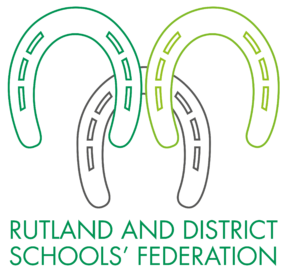In the Early Years, English is known as Communication, Language and English and is one of 6 areas of learning taught on a daily basis, through the indoor and outdoor learning environments. This indoor and outdoor learning is continued into KS1.
In the Early Years and KS1, we lay the foundations to enable children to want to be successful readers and writers. We aim to make the learning in English as ‘real’ to the children as possible, as without a true purpose the children will not see the reason for reading and writing.
At Catmose Primary, we follow our own Systematic Synthetic Phonics (SSP) Programme, using Q Phonics actions and handwriting stories to ensure consistency in pupils’ learning of Grapheme Phoneme Correspondences (GPCs). To see our Phonics Progression document, please click here. In EYFS and KS1, pupils have daily Phonics lessons (which lead into spelling lessons in Year 2 and into KS2) following the same lesson structure of Review, Teach, Practise and Apply. Pupils are exposed to range of literature during English lessons, which are in addition to Phonics sessions.
Our colour banded reading books are from Badger Learning which ensures consistency in allocation to bands. Banded reading books in EYFS and KS1 link to the different phonics phases to ensure that pupils have the prior knowledge to be able to access to book independently. Our reading bands continue into KS2 to provide increasing challenge.
Phonic Sounds
Phase 2 phoneme actions
Phase 3
Phase 5a phoneme actions
Phase 5b phoneme actions
Phase 5c phoneme actions
In KS2 a daily GAPS (Grammar, Spelling and Punctuation) focus is taught in groups which are tailored to meet ability needs. This work is then referred to in Writing and Reading focus sessions.
Reading with your child
Here are some simple tips to help your child with reading at home.
Enjoy it!
- Make book sharing a fun time that you both enjoy – snuggle up with a book!
- Read old favourites together as well as new books.
- If your child reads to you, or joins in when you are reading to them, show them that you are proud of what they can do.
Make time and space!
- Make reading a special part of your day. Try to find a time when you aren’t busy doing other things so you can spend ‘quality time’ reading together – even if it’s only for a few minutes.
- Try to find a quiet place away from distractions like the television or the computer.
- Try to find some time every day for reading together – 10 minutes each day is better than a long session once a week.
Be positive
- Give your child lots of praise, encouragement and support when they read to you. Focus on what they did well, not what they did wrong. Even small successes are important.
- Never force your child – if they are reluctant to read you could offer a small reward such as playing a game they enjoy. If they are tired or very reluctant, read to them instead.
Found out what they like to read!
- Sometimes we read for pleasure but much of the time we read for a reason, Read lots of different things together – stories, information books, comics, magazines, websites, cereal packets, TV listings – anything you and your child enjoy reading or need to read.
- Let your child make his or her own reading choices sometimes. They need to develop their own personal likes and dislikes. It is OK not to like some books! Don’t worry if they choose an ‘easy’ favourite book over and over again. This is normal and helps children build their reading confidence and enthusiasm.
- Join the local library and let your child choose from the great range of books on offer.
Talk about it!
- Talking about books will help your child become more involved and interested in reading and can help them understand more.
- After you’ve read a book together – or anything else you choose to read – talk about it. What was it about? How did it make you feel? What did you like or not like about it? What did you learn? Spend some time looking at the pictures and talk about what they tell you. Never cover the pictures while sharing a book.
- You can talk with your child about anything – games, TV programmes, films or other things you do together.





